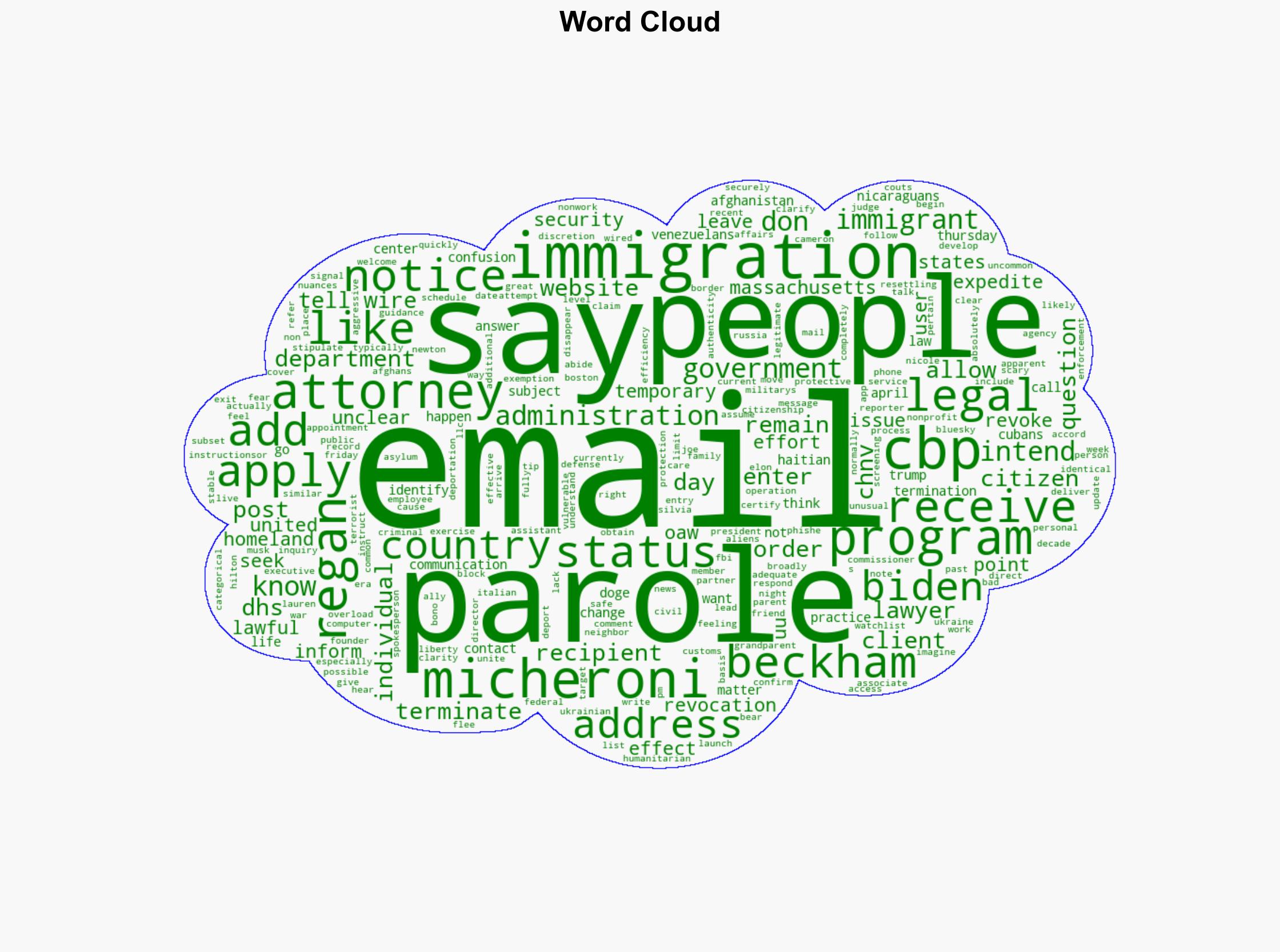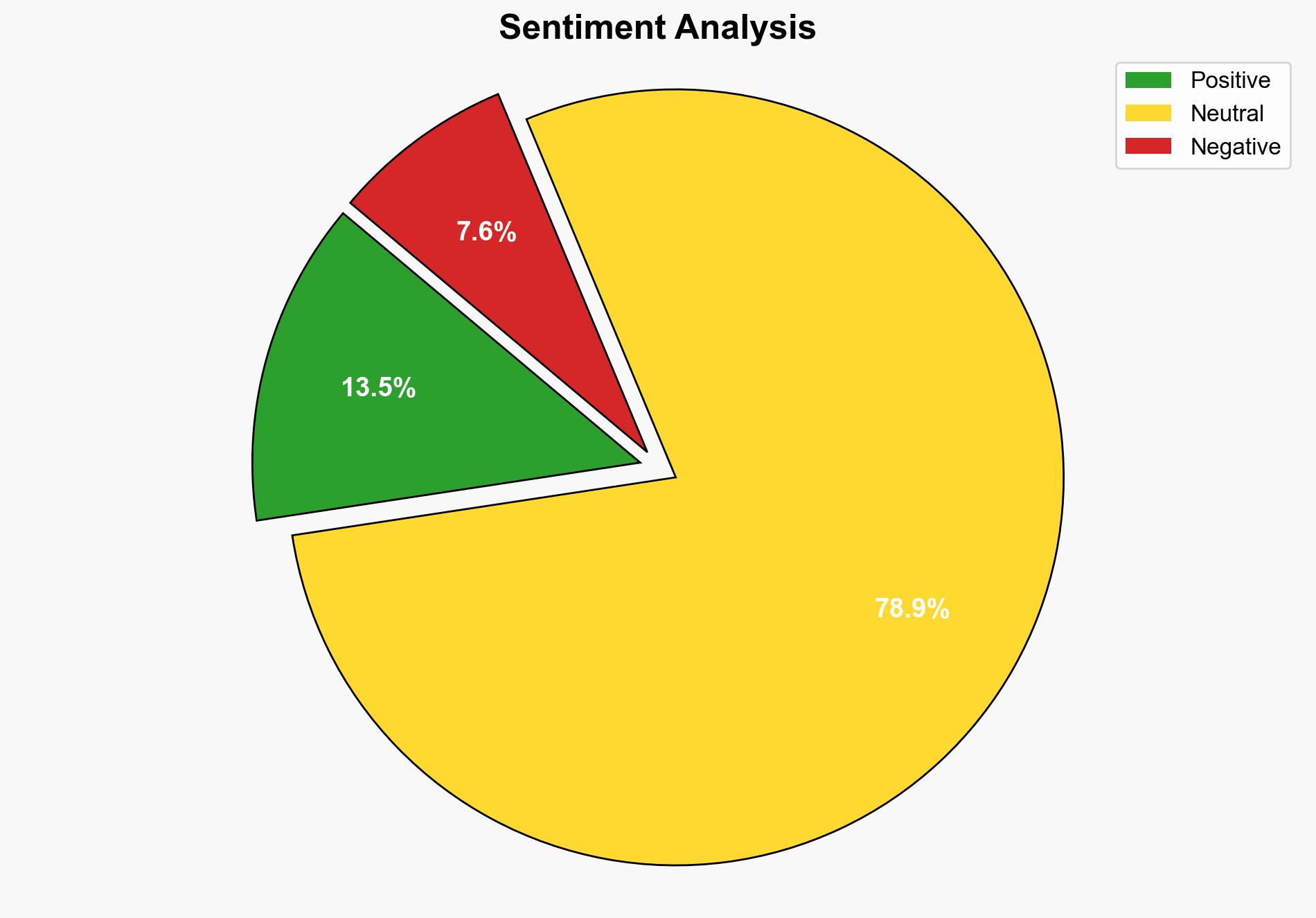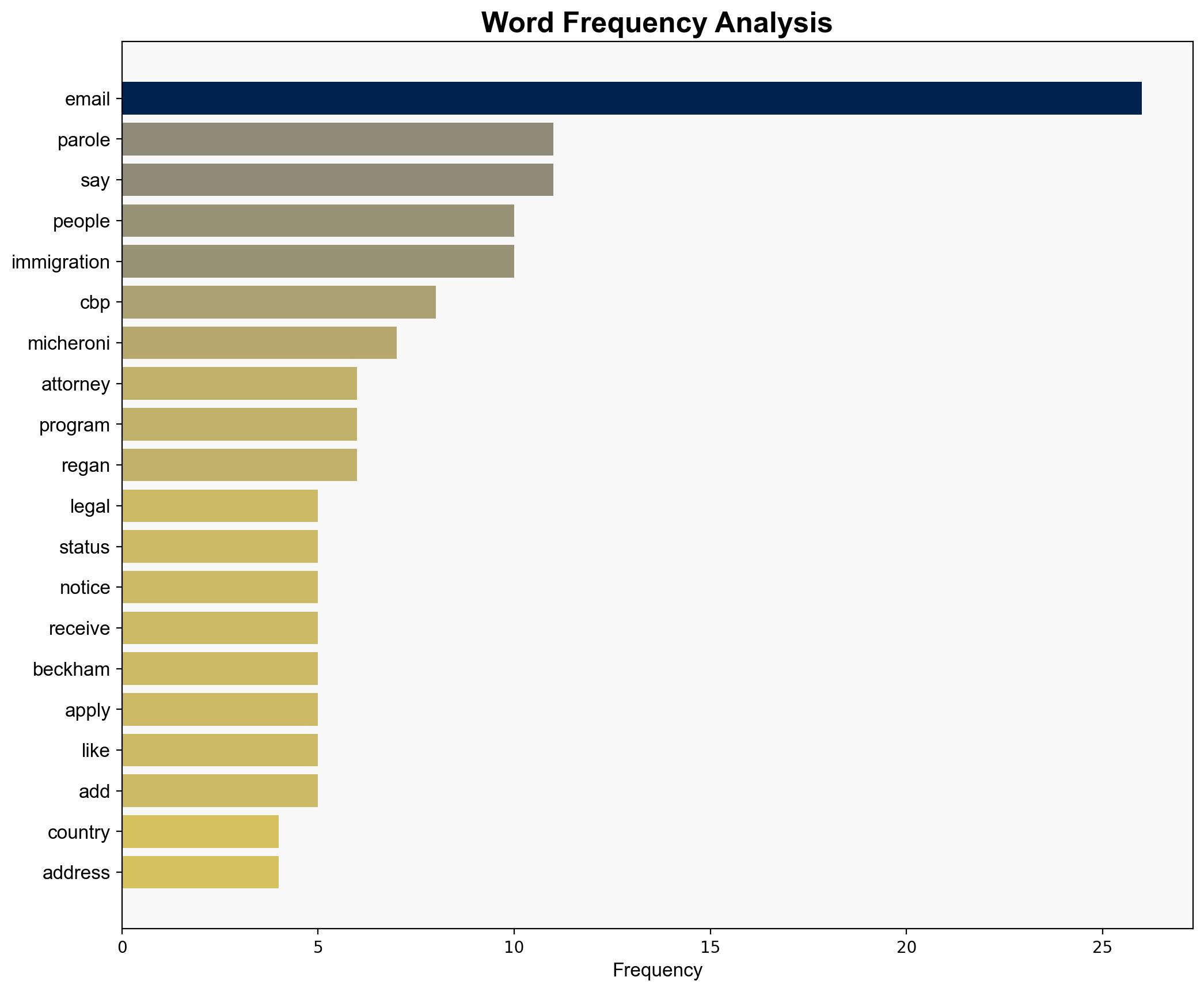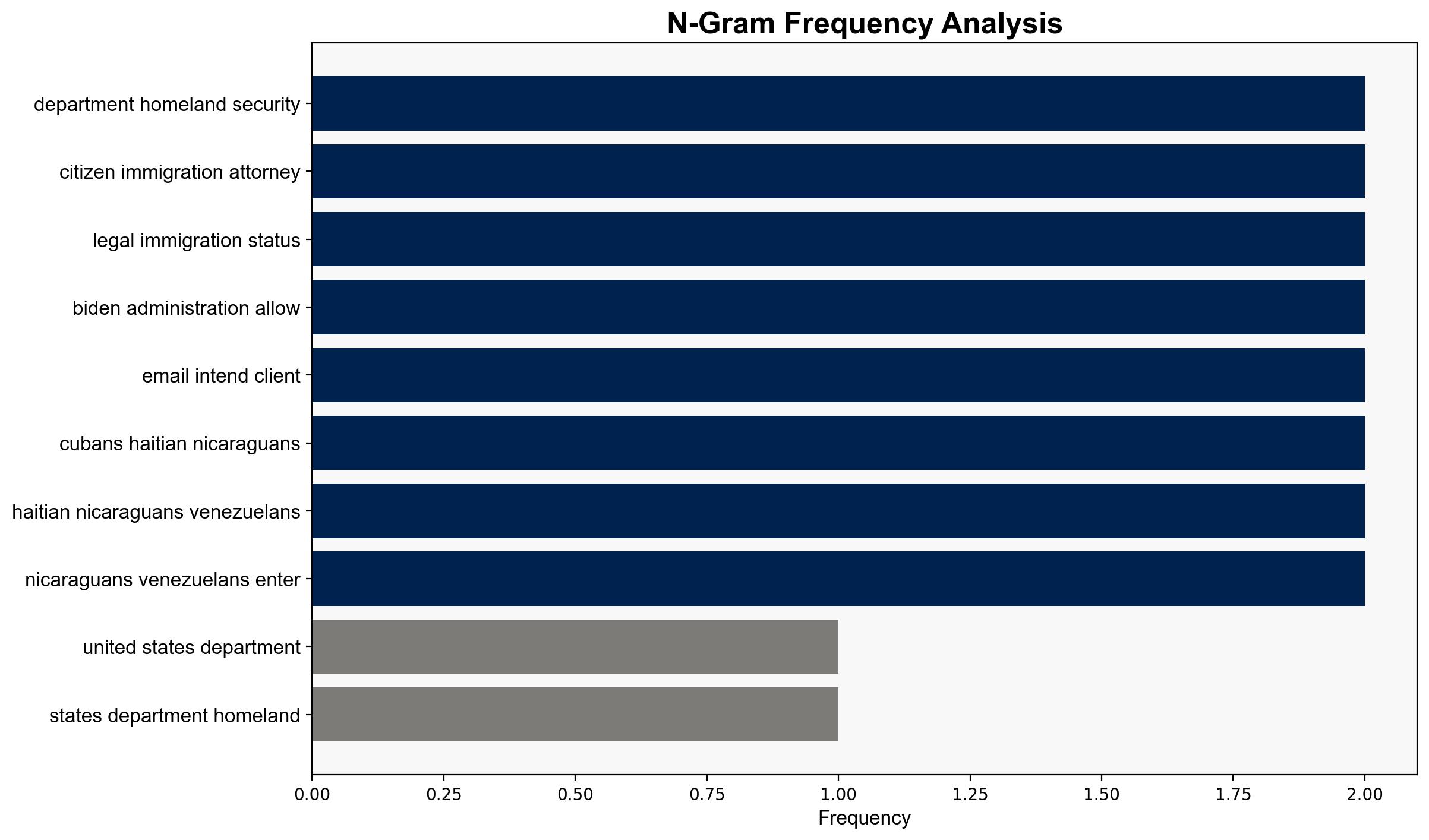Homeland Security Email Tells a US Citizen to ‘Immediately’ Self-Deport – Wired
Published on: 2025-04-13
Intelligence Report: Homeland Security Email Tells a US Citizen to ‘Immediately’ Self-Deport – Wired
1. BLUF (Bottom Line Up Front)
A recent email from the United States Department of Homeland Security has caused confusion by instructing individuals on temporary legal status to self-deport. The email was mistakenly sent to at least one US citizen, raising concerns about the accuracy and delivery method of such critical communications. The incident highlights potential flaws in the current immigration communication processes and poses risks of legal and diplomatic repercussions.
2. Detailed Analysis
The following structured analytic techniques have been applied for this analysis:
General Analysis
The email from the Department of Homeland Security indicates a revocation of “parole” status for certain individuals, with a directive to leave the US within seven days. The communication method and the inclusion of a US citizen, Nicole Micheroni, suggest systemic issues in the targeting and delivery of these notices. The email’s similarity to messages sent via the CBP One app, and its broader distribution beyond intended recipients, further complicates the situation. The lack of clear exemptions or guidelines in the email exacerbates confusion among recipients.
3. Implications and Strategic Risks
The miscommunication poses several risks, including:
- Potential legal challenges from individuals wrongfully targeted by the email.
- Diplomatic tensions with countries whose citizens are affected by erroneous deportation notices.
- A loss of public trust in the Department of Homeland Security’s ability to manage immigration processes effectively.
- Increased scrutiny and criticism from immigration advocacy groups and legal entities.
4. Recommendations and Outlook
Recommendations:
- Implement a thorough review and audit of the communication processes used by the Department of Homeland Security to prevent future errors.
- Enhance verification protocols to ensure accurate targeting of recipients for critical immigration notices.
- Develop clear guidelines and training for personnel involved in drafting and sending official communications.
- Engage with legal and advocacy groups to address concerns and improve transparency in immigration procedures.
Outlook:
Best-case scenario: The Department of Homeland Security swiftly rectifies the error, restoring public confidence and minimizing legal fallout.
Worst-case scenario: Continued errors in communication lead to significant legal challenges, diplomatic issues, and a prolonged loss of trust in immigration authorities.
Most likely outcome: Incremental improvements in communication processes and protocols, with ongoing scrutiny from stakeholders and advocacy groups.
5. Key Individuals and Entities
The report mentions significant individuals and organizations:
- Nicole Micheroni – A US citizen and immigration attorney affected by the erroneous email.
- Hilton Beckham – Confirmed the broad distribution of the email beyond intended recipients.
- United States Department of Homeland Security – The agency responsible for the email communication.
- US Customs and Border Protection – Involved in the distribution of the email notices.




